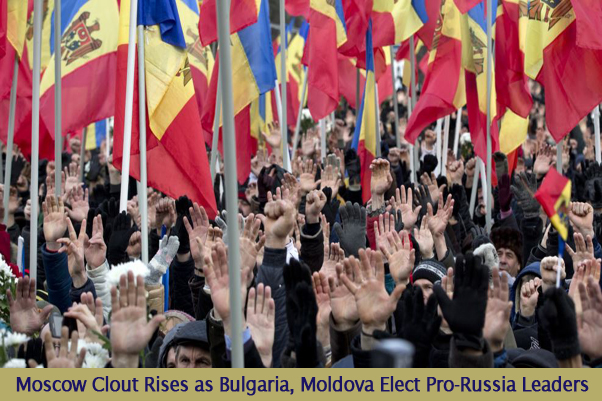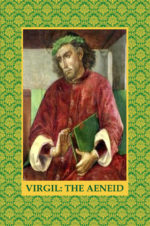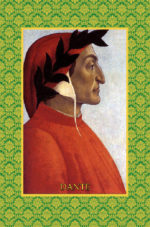BULGARIA AND MOLDOVIA (November 13) elected two new presidents; both men are overtly open to relations with Russia. Rumen Radev, the new Bulgarian president decisively defeated the pro-Western candidate, Tsetska Tsacheva. Radev not only called for the EU to cease sanctions against Russia, he also announced his willingness to accept the Crimean referendum that made Crimea part of the Russian Federation. During his victory speech, Radev not only iterated his opposition to sanctions against Russia, he also commended President-elect Trump for “seeking increased dialogue” with Russian President, Vladimir Putin.
Likewise, the new Moldovan presidential Igor Dodon, is also pro Moscow. He defeated World Bank employee Maia Sandu, who campaigned under an EU banner, for the presidency of Moldova. Russia and the EU have hotly contested Moldova, which seems now to prefer the former.
Mr Dodon won the presidential election partly on a promise to scrap a trade deal signed with the EU in 2014. The promise “is supported by Moldovans who suffered after Russia, in response to EU sanctions, imposed trade restrictions on EU members and affiliates following the agreement.”
“Speaking to Russian television after the vote, President Dodan said Moldovans had voted for “friendship with Russia, for neutrality, for our orthodoxy, for the country’s union.”
Dodan is aware that “a very serious combat is ahead”, a combat between EU liberal globalists leaning westward and Moldovan patriots leaning to the east. However, he said, “we are ready for this combat.”
Unlike Bulgaria, Moldova is not an EU member (but an affiliate by agreement), nor is it a member of NATO. Despite affiliate status and a push by some for full EU membership, Dodon has indicated interest in joining the Russian sponsored Eurasia Economic Community and “eliminating the possibility of cooperation with NATO“, but he has also “promised to balance between Russian and the West, a feat that neighboring Ukraine has found impossible.”
Bogdan Bezpalko, Assistant Director of the Center for Ukrainian Studies at Moscow State University, stated that the presidential elections in Moldova and Bulgaria represent,
“… undoubtedly, positive dynamics. But it (they) should not be regarded as a step toward an ‘alliance’ [with Russia]. . Still, it is clear that the population of the Eastern European states have become disenchanted with the ideology of ‘Euro-integration’; they want to resume normal and pragmatic relations with their neighbors.”
Russian parliamentarian Franz Klintsevich, First Deputy Chairman of the Committee on Defense and Security explains that the rise of Euro-skeptic parties in the Balkan Peninsula was to be expected:
“I have come to a conclusion that Russia’s consistent, competent and honest position on the world arena, its aspiration not to seek dominance but to try to solve… the world’s problem of international terrorism transparently, honestly and effectively [have played a substantial role in the elections’ outcome],”
According to the French Daily, La Croix:
“Already deeply shaken by the Brexit, the European Union has suffered a new warning this Sunday, November 13, this time from the eastern margins of the old continent. Voters in Bulgaria and Moldova have elected to the presidency of their respective countries openly Russophile candidates, the Moldovan Igor Dodon and the Bulgarian Rumen Radev, who both campaigned in favor of a rapprochement with Russia.”
Journalist Roland Oliphant suggests that the election of two pro-Russian presidents “adds to mounting concern about Western unity following Donald Trump’s victory in the US election last week.“
“These elections will ring anyway as a prestigious victory for Vladimir Putin and thunder in the European skies”
ESTONIA
Within one weeks of the political changes in Bulgaria and Moldova, the pro-Western government in Estonia prematurely collapsed. On November 9, 2016 Prime Minister Taavi Roivas’ Estonian Reform Party received a vote of no-confidence from the Estonian parliament. Roivas was replaced by Juri Ratas head of the opposition Center Party founded a mere 25 years ago. Following the vote, the Center Party, a party that has a collaborative agreement with Putin’s United Russia Party, has emerged as a significant member of the new coalition government that will lead Estonia. The coalition consists of The centrist Center Party, leftist Social Democrat SDE, and conservative IRL. Together these three coalition partners control 56 out of 101 seats in the Estonian Parliament and have committed to ties with the EU and NATO and have vowed to keep Estonia within the Western EU ambit:
“We will adhere unconditionally to the current principles of security and foreign policy; our membership in NATO and the EU is the paramount guarantee for our security,” the parties said in the joint statement confirming their cooperation.
Nonetheless, the new Prime Minister, Juri Ratas is a member of the Center Party, which in the past has had strong ties with Russia. With the Center Party heading the coalition, it is likely that Estonia will adopt a more balanced relationship with Russia and the EU. The Center Party has the strong support of Estonia’s Russian minority, which it must retain so as to keep its hands on political power. Besides, the Center Party has previously signed an agreement committing it to work collaboratively with Putin’s United Russia Party into the future.
The Center Party’s agreement with United Russia states that the two share common goals and interests and should cooperate in the areas of information exchange relative to professional party building, legislative processes, financial professionalism, international relations, cultural exchange and work among youth. The agreement exists to deepen the “good-neighborly cooperation between Estonia and Russia.”
The document of collaboration was signed by Mailis Reps, current Deputy Chairman of the Center Party.
Bulgaria and Moldova are tilting away from the EU toward Russia, and Estonia is in the process of normalizing its relationship with the East. All three will endeavor to maintain a balance between Brussels and Moscow. But it is clear, Russia is no longer an outsider but an alternative to Western Liberalism, a liberalism that is wearying the nations of Eastern Europe and even those of Western Europe such as France and Britain who are making their voices heard in a rising symphony reaching even Asia and Africa and America too.







